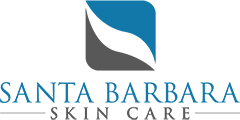Beauty from the Inside Out: How Diet Shapes Skin Health
The saying “you are what you eat” may sound cliché, but when it comes to skin health, it holds more truth than many realize. What you put on your plate can directly influence how your skin looks, feels, and ages.
The Connection Between Nutrition and Skin
Your skin is the body’s largest organ, and just like your heart or muscles, it thrives when fueled with the right nutrients. Diets rich in antioxidants, vitamins, and healthy fats support collagen production, boost hydration, and help maintain a radiant complexion. Omega-3 fatty acids from fish and flaxseed can reduce inflammation, while colorful fruits and vegetables deliver powerful antioxidants that fight signs of aging.
What Happens with a Poor Diet
On the other hand, diets high in processed foods, refined sugars, and unhealthy fats can take a toll. These choices may trigger acne breakouts, dullness, or worsening redness in conditions like rosacea. Dehydration from inadequate water intake can also leave skin looking tired and dry. Over time, nutritional imbalances can speed up the skin’s natural aging process, making prevention just as important as treatment.
How Dermatologists Can Guide You
Dermatologists understand that achieving healthy skin goes beyond creams and treatments. Many now offer integrative approaches, combining topical care with nutrition recommendations tailored to your needs. Whether it’s identifying food triggers for acne or recommending supplements that boost collagen, a dermatologist can design a personalized plan to help your skin glow from the inside out.
Building Lasting Habits
Pairing balanced nutrition and diet with a consistent skincare routine creates the foundation for long-term skin health. By fueling your body with the right foods and working with a dermatologist to guide your care, you can enjoy a healthier complexion that reflects your overall well-being.
The saying “you are what you eat” may sound cliché, but when it comes to skin health, it holds more truth than many realize. What you put on your plate can directly influence how your skin looks, feels, and ages.
The Connection Between Nutrition and Skin
Your skin is the body’s largest organ, and just like your heart or muscles, it thrives when fueled with the right nutrients. Diets rich in antioxidants, vitamins, and healthy fats support collagen production, boost hydration, and help maintain a radiant complexion. Omega-3 fatty acids from fish and flaxseed can reduce inflammation, while colorful fruits and vegetables deliver powerful antioxidants that fight signs of aging.
What Happens with a Poor Diet
On the other hand, diets high in processed foods, refined sugars, and unhealthy fats can take a toll. These choices may trigger acne breakouts, dullness, or worsening redness in conditions like rosacea. Dehydration from inadequate water intake can also leave skin looking tired and dry. Over time, nutritional imbalances can speed up the skin’s natural aging process, making prevention just as important as treatment.
How Dermatologists Can Guide You
Dermatologists understand that achieving healthy skin goes beyond creams and treatments. Many now offer integrative approaches, combining topical care with nutrition recommendations tailored to your needs. Whether it’s identifying food triggers for acne or recommending supplements that boost collagen, a dermatologist can design a personalized plan to help your skin glow from the inside out.
Building Lasting Habits
Pairing balanced nutrition and diet with a consistent skincare routine creates the foundation for long-term skin health. By fueling your body with the right foods and working with a dermatologist to guide your care, you can enjoy a healthier complexion that reflects your overall well-being.
Suggested Reads

Santa Barbara Skin Care
© 2024 Santa Barbara Skin Care. All Rights Reserved. | Sitemap | Privacy Policy | Notice of Privacy Practices | Terms of Service

Leave a Reply